by Giovanni Capriotti
PROVIDENCE BAY—The night is still dark at the Providence Bay marina. A family of rabbits lines up on the dusty roadside to quickly disappear in the bush when a car goes by.
The Purvis, the namesake boat in the Purvis Fisheries fleet, gill net boat lays alone in the water surrounded by the sounds of the lake. Meanwhile the dawn lights begin to break through the night when a truck driven by the captain parks on the peer beside the boat.
Shortly after, the vessel engine overwhelms the peace of the bay. On the main deck, all the lights are on when another vehicle with two brothers belonging to the crew approaches the marina.
A pot of coffee boils in the smoky cabin. In a matter of seconds the boat heads toward Lake Huron’s open waters, surrounded by the seagulls.
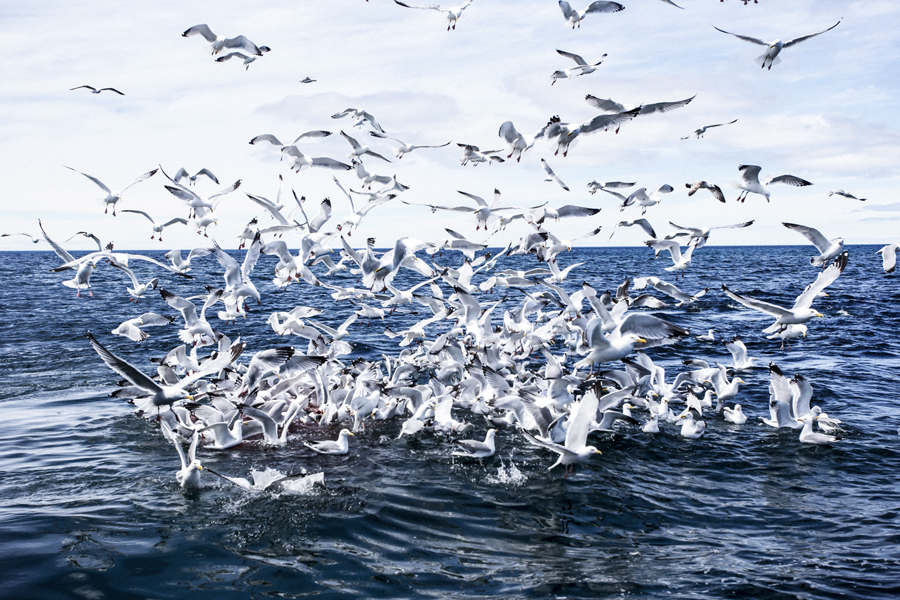
“This week we’ll probably be out six days except Sunday. The weather looks promising, “ the captain says.
The youngest of the crewmembers gets some cigarettes out of a pack and places them on a messy table along with his steel watch. Then he fills his coffee mug and heads out to open the side of the boat.
The morning breeze blows over the lake while the operations to retrieve the nets begin in a methodical routine established over the years.
The whole crew is looking at the water to spot the floater signalling where the nets lie beneath.
As soon as the buoy is located, the captain approaches the spot. Promptly the younger bother grabs the pole and the machine to pull the nets goes on.
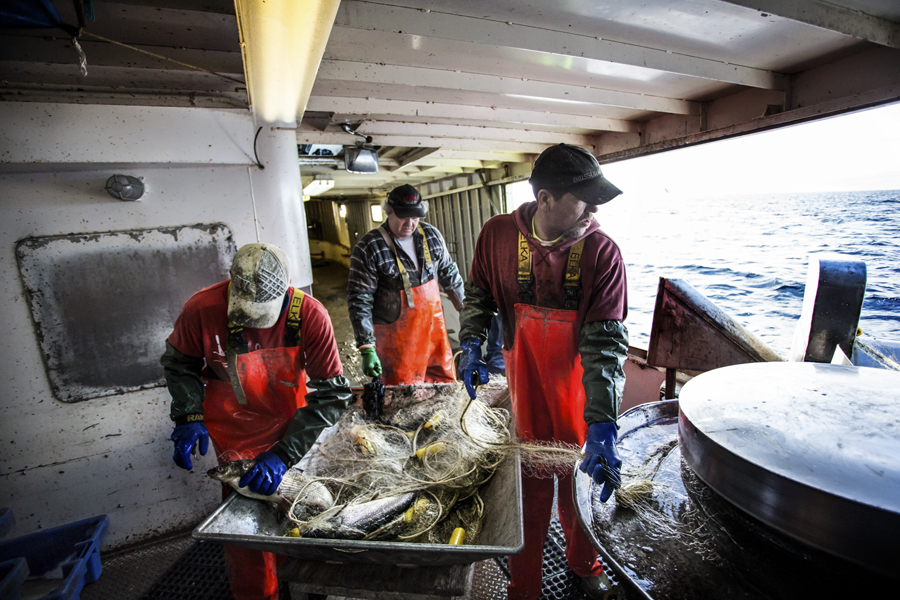 A couple of huge lake trout show up immediately, get untangled and thrown in a blue basket.
A couple of huge lake trout show up immediately, get untangled and thrown in a blue basket.
“We are mostly after whitefish. That’s what we aim for. Lake trout is fine though,” says the younger brother while cleaning one of the trout.
The operations continue, and as the boat rolls on the water, the sun gets higher and warmer. Every net, once cleared of its catch, is placed in a basket and moved to the back of the vessel.
The seagulls are constant company, flying over the crew and vessel, waiting for their share of fish. The older of the two siblings smokes his cigarettes while keeping busy with the onboard duties.
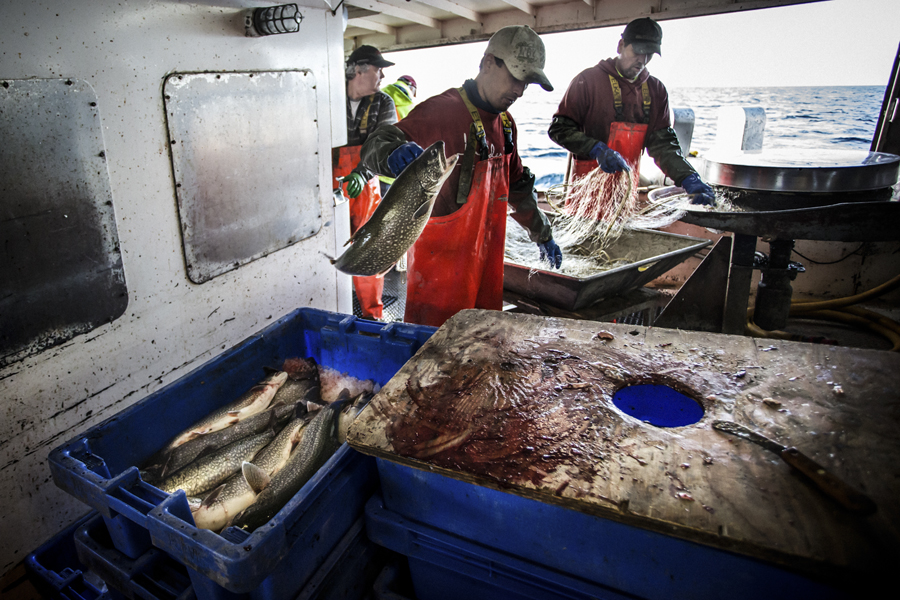
He is the portrait of a navigated fisherman. His hands appear to be heavily marked by the profession while his silhouette contrasts the blue water and sky like a watercolour painting.
“I don’t like to be in pictures. My face isn’t good enough,” he says smiling at the only words he has pronounced since the beginning of the shift.
Life onboard is not meant for soft people. Frigid temperatures or intense heat, paired with early shifts, render a tough job. Yet fishing has always been one of the most relevant resources for Manitoulin Island. It provides both occupation and food for its inhabitants.
The baskets get filled mainly with lake trout and some whitefish. The captain does not look happy about it. You can tell from the expression on his face that the harvest that day does not meet his standards.
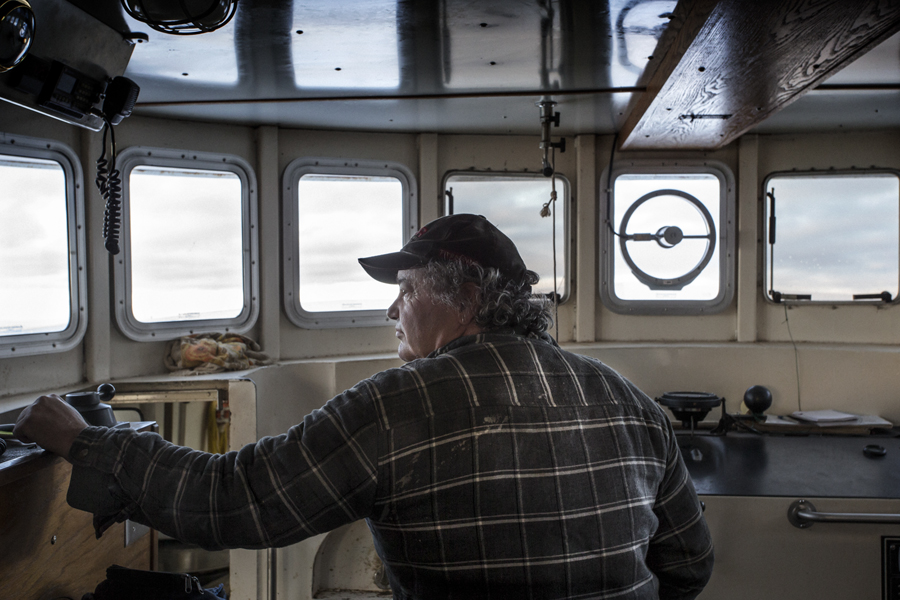
Once all the nets have been retrieved, the crew has to set them back in the water for the next day. The two brothers work hard to properly complete this final task. The purpose is to prevent the nets from tangling or breaking with a consequent loss of fish.
The captain leads the vessel during this operation. He speeds up and slows down the boat between the designated fishing grounds.
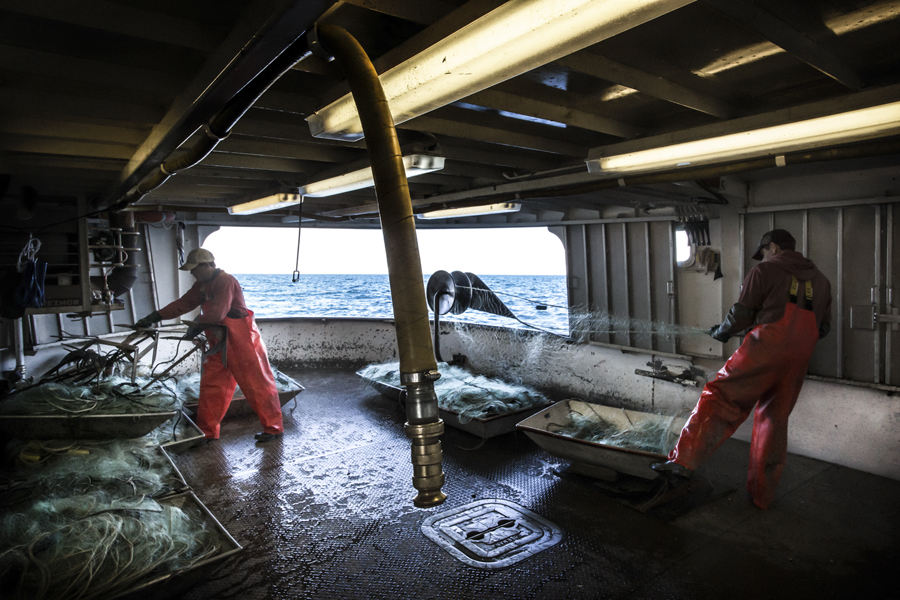
“This is the most boring part of the job,” he says in an end of the shift face.
The last set of nets is finally submerged. The Purvis is headed back to the marina. The guys clean the lower deck and empty the fish guts in the lake.
The seagulls, which patiently waited for their turn, pile up on the water to enjoy the daily fish feast. When all the crew sets foot on the peer, the captain’s face looks more relaxed. For the two brothers, there is still a trip to the Purvis Fisheries Burnt Island processing facility before the deserved rest.






